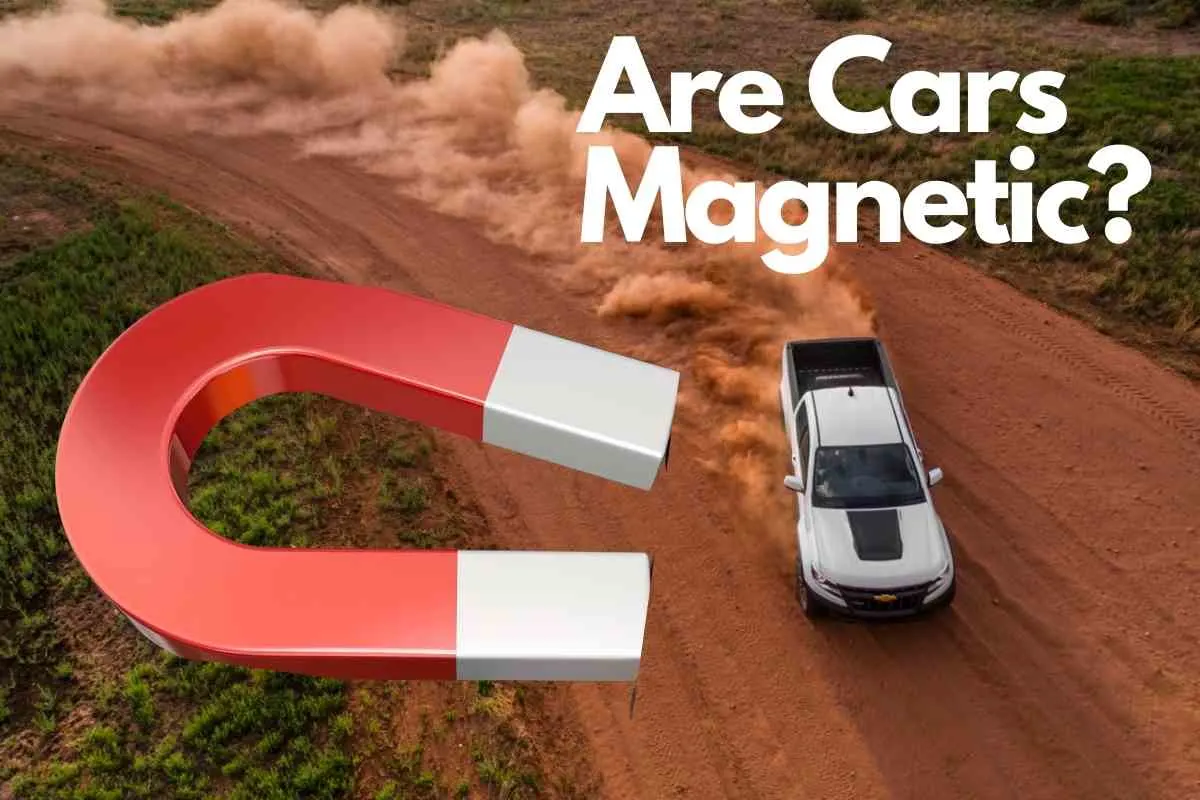People use magnets for all sorts of things beyond hanging art and A+ papers on their refrigerators.
Did you know that there are dozens of magnets inside of your vehicle that aid in the operation of many crucial components?
How do these magnets interact to make your vehicle function? And…your car is made of metal, right?
Does that mean cars are or are not magnetic themselves?
Most cars are magnetic and also use magnets in various operational systems. Magnets will stick to any flat, metal surface of your car and some magnets are strong enough to lift a vehicle off of the ground.
Because magnets have become more regularly used in vehicle manufacturing, the production of powerful magnets such as neodymium (NdFeB), aluminum-nickel-cobalt magnets (Alnico), and samarium cobalt (SmCo) and mining of rare earth metals has increased over the past few decades.
There is also stiff competition among companies that make these sophisticated magnets for commercial use.
Why Do We Need Magnets in Our Cars?

There are a couple of hundreds of magnets used to make car systems today.
With the recent shift from hydraulic, pneumatic, and mechanical control systems to electrical control systems, there is a need for magnets to control the following areas:
- Motors – Fans, drive motors, power steering, alternators, seat motors, starters, and winds
- Sensors – Airbags, position sensors, ABS speed sensors, engine control, seat belt sensors, and position sensors
- Actuators – cruise control, doors, brakes, vents, suspension, fuel injectors, etc.
Consequently, because vehicle manufacturing is shifting towards electric and hybrid vehicles and more electronic gadgets in the vehicles, the need for magnets in the industry has also increased.
The demand has shifted from the traditional ferrite magnets used in old vehicles to more compact high-performance magnets.
Despite their powerful magnetic strength, they lose magnetism because of extreme temperatures.
At 80°C, neodymium (NdFeB) loses its magnetism but with different alloy compositions, manufacturers can increase its operating temperature to 250 °C.
Read on to see how to stick magnetic signs to your vehicle either for beauty or advertising.
Are Some Cars Not Magnetic?
It’s very possible to have a car that is not magnetic.
Car manufacturers are looking for innovative ways to make lighter cars and that means that they will use lighter materials.
This is because, the lighter a car is, the less fuel it will consume.
Some car body panels are made of stainless steel, carbon fiber, aluminum, and fiberglass composites.
These are non-magnetic materials and magnets will only stick to cobalt, nickel, or iron.
Many manufacturers are using aluminum to make lightweight body panels e.g., Ford F-150’s models and Audi.
What Parts of a Car Are Magnetic?

1. Anti-Lock Braking Systems
These will help your vehicle come to a stop faster after braking.
This allows you to keep steering even as the vehicle slows down which prevents accidents.
The magnets used in ABS systems are permanent and instantly attached.
2. Seat Belt Detection
This system will use reed switches to cut the flow of electricity depending on the type of reed switch as the presence of a magnet.
The flow of electricity will detect whether or not a passenger is wearing their safety belt and give an alert if not.
3. Door positioning
This system will also use the reed switch technology and sound an alarm if the door hasn’t been shut properly.
4. Tracking systems
Powerful magnets called neodymium magnets are used to keep the tracking system in place to keep it working properly.
This will prevent the tracking system from shifting if the vehicle goes through rough terrain, high bumps, etc.
5. Engine
Electric cars use strong magnets to run their engines.
Powerful magnets are arranged around the engine’s coil and force it to spin when these magnets repel each other.
Racecar and other high-performance engines use stronger magnets such as boron and neodymium iron.
Do Magnets Stick To Cars?
Magnets will stick on any surface made of metal. They will however not stick to non-flat surfaces.
You have nothing to fear if you want to use magnet or magnet signs on your car surface.
They will not damage your car paint, on the contrary, they will help shield your car from harmful UV rays which will chip the paint or make it dull.
However, if you stick your magnet on a surface with flaky paint or rust spots, the power of your magnet will reduce and may fall off.
Many business owners prefer putting magnet signs on their cars because they are less permanent and can be easily removed when they are no longer required.
You should have a professional stick it on for you to avoid ruining your paint and also learn how to maintain it properly.
Magnets repel water because water is diamagnetic. This means that your sign will remain intact even in harsh rain.
You can expect magnetic signs to last up to 5 years with proper care and maintenance.
How to Make a Magnet Stick To Your Car
- It’s best to stick a magnet on a flat surface (flat magnetic strip). Curved surfaces are unsteady and the magnet could easily fall off the surface.
- You should consider buying magnets with rounded corners. A magnet with a circular shape is more aerodynamic.
- Ensure the surface you are sticking to the magnet is completely dust-free. Wipe the surface completely before sticking your magnet.
There are a number of ways you can stick magnets to a non-magnetic body panel such as aluminum.
Consult an expert before using any of these methods to stick your magnet to avoid ruining your vehicle’s paint.
They include:
- Using Gripper Mats™ by placing them on the back of the sign and sticking it on the vehicle
- Putting glue on the back of the magnet and sticking it on the vehicle.
- Placing a ferromagnetic material behind the aluminum body plate and sticking the sign
- Connect the aluminum to a power source and create a magnetic field to stick the magnet.
